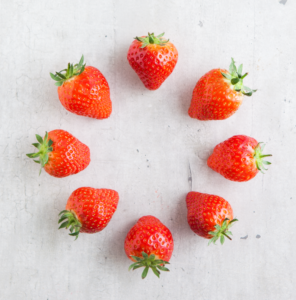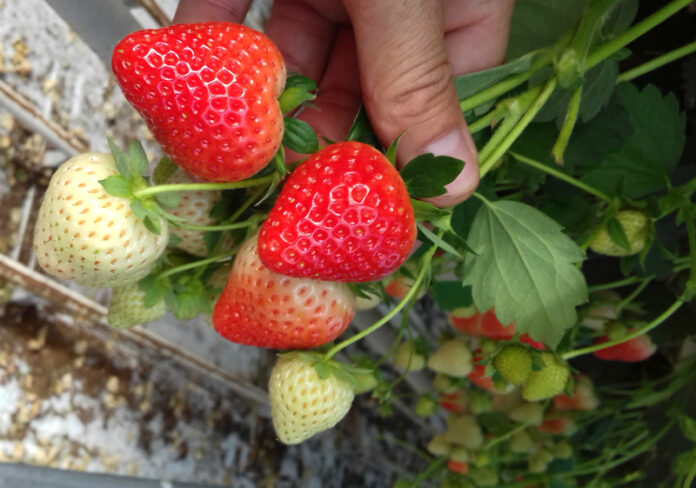
Dr Eamonn Kehoe discusses some of the new strawberry varieties that are making their way onto the soft fruit market.The variety ‘Malling Centenary’ is currently the dominant strawberry variety on the Irish market. Whilst the fruit quality of the variety is superb, the yield can be a little low. Growers are always on the lookout for newer, higher-yielding varieties. ‘Malling Centenary’ was bred by the famous East Malling Research (EMR) Centre in Kent. They have expertise which spans over 100 years in fruit breeding. The centre founded in 1913 by an association of over 600 fruit growers, is most famous for its work on apple rootstocks. As well as soft fruit, the research centre was also responsible for breeding a whole host of fruit cultivars including apples, pears, cherries, and hops. Strawberry breeding is now at the forefront of their fruit breeding programme. Extending the soft fruit season was the primary driver for the strawberry breeding programme. ‘MALLING ALLURE’ One of the latest strawberry varieties released from the breeding programme is ‘Malling Allure’. Like ‘Malling Centenary’ the variety is a ‘June bearing’ strawberry or according to scientific lingo a ‘short day’ plant. This means these plants initiate flower buds in short days, but the day length needed for such initiation is not fixed but is modulated by temperature. The lower the temperature, within limits, the fewer the days needed. These ‘June bearers’ fruit naturally in June and hence the name. ‘June bearers’ are the most popular amongst commercial growers and are the result of decades of breeding for productivity, size, flavour, disease resistance and other attributes. ‘Malling Allure’ is a sister of ‘Malling Centenary’. It is, however, classed as a late season variety. The crop yield is much higher than ‘Malling Centenary’. In some trials in the UK, the plant has given up to 1 kg of fruit per plant. ‘Allure’ crops approximately 10-14 days later than ‘Malling Centenary’. This lateness in fruiting would be ideal for strawberry growers who are looking to spread out their crop harvest. The quality of the fruit is also excellent. The fruit is a little smaller than ‘Malling Centenary’ but is a benefit as some of the latter’s fruit is too big. Overall in trials, the percentage of Class 1 fruit harvested is greater than 90%t. Fruit firmness is also superb. The harvest period for ‘Allure’ in UK trials lasted from four to five weeks which is quite similar to its sister ‘Malling Centenary’. I have seen several ‘Malling Allure’ crops this season and was very impressed with the yield and the quality of the fruit. It is an exciting addition to our strawberry variety list. ‘MALLING VITALITY’ Another new cultivar from the EMR breeding programme is ‘Malling Vitality’. This is an early mid season ‘June bearer’. Picking begins approximately 5-10 days before ‘Malling Centenary’. Yields and Class 1 characteristics are quite similar to ‘Malling Centenary’. The percentage of Class 1 fruit was 96% in a trial run by EMR. The fruit size was also excellent with 60% of the fruit being greater than 35mm. The shelf life of the strawberry is excellent with the gloss, colour and firmness achieving very high scores in tests. The main advantage for the variety is it has moderate resistance to crown rot (Phytophthora cactorum) and powdery mildew (Podosphaera aphanis) disease, which is hugely beneficial to growers. Both diseases can be very troublesome for growers and any increase in resistance to these is to be greatly welcomed. All of these varieties are seriously worth trying on a small scale on your farm. All of the strawberry varieties mentioned here are ‘June bearing’. This means they are genetically suited to our cool, temperate climate and our latitude. Therefore your odds of success are much higher compared to trying to grow some of the everbearing varieties. ✽ Teagasc |





